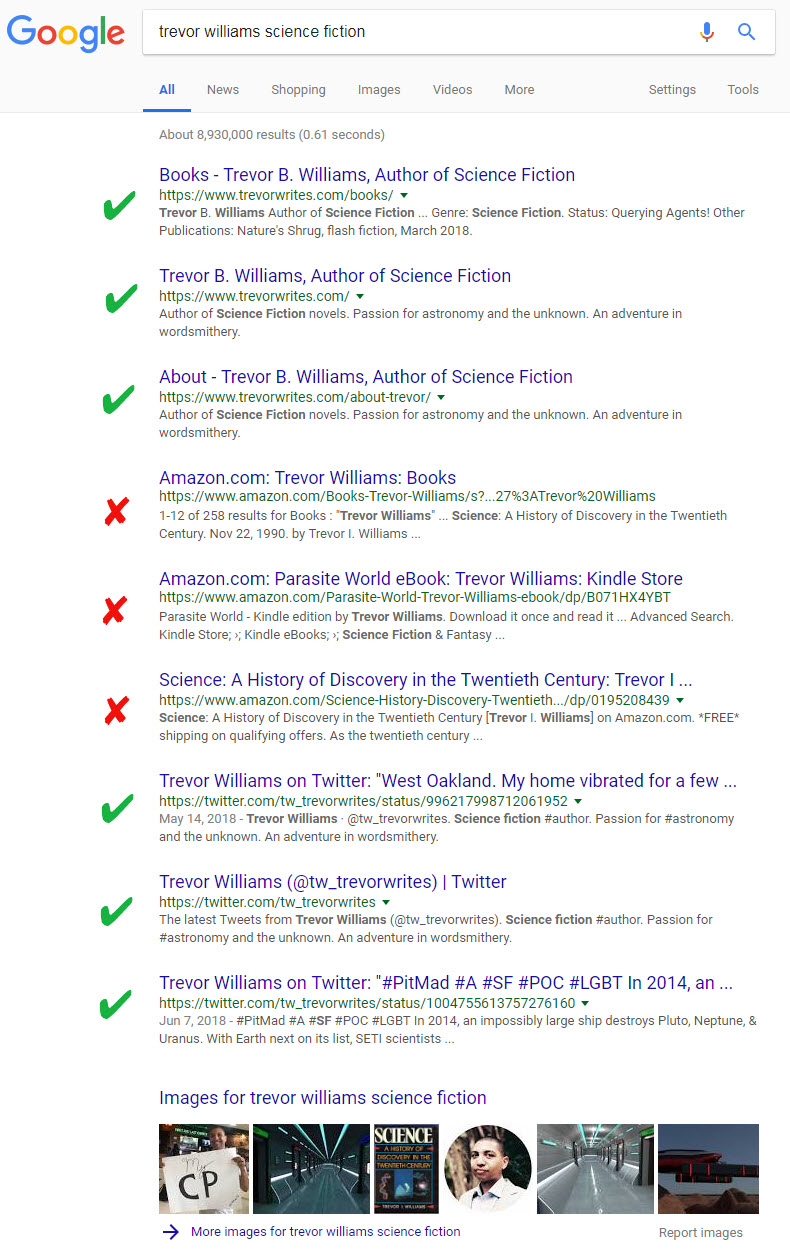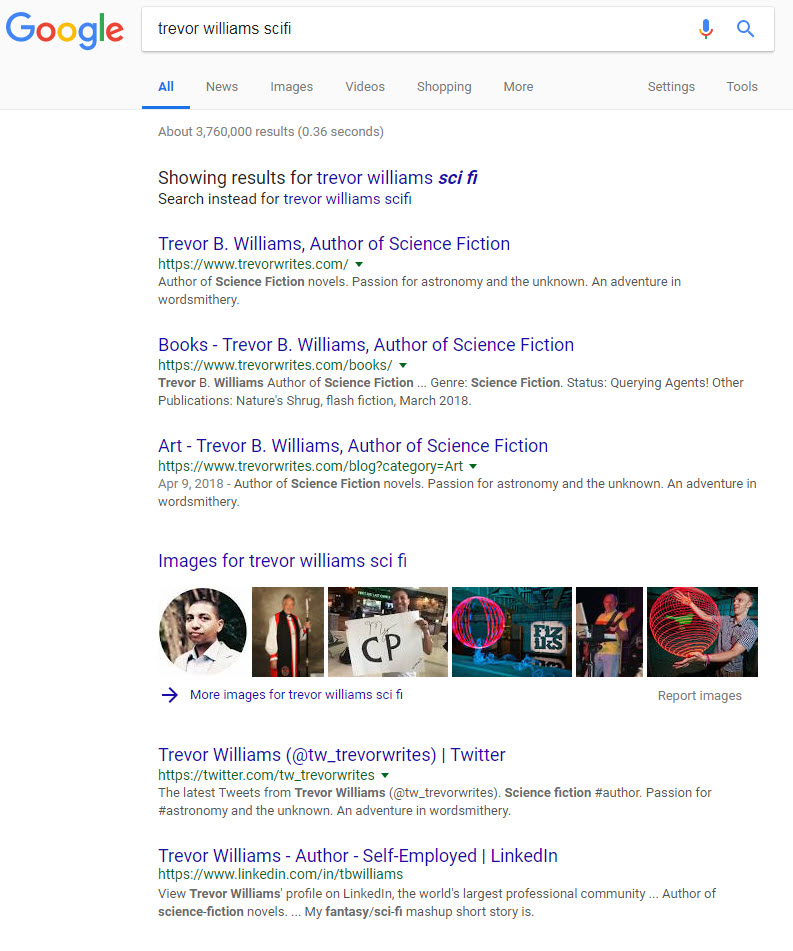The Writing Zone: Stage 14 - Do Writers Need a Blog?
Whenever I strike up conversations with writers I meet at conferences, the inevitable questions surrounding social media and one's presence online arise. During SFWC18, I attended a few sessions that covered the importance of having an online presence in general, specifically on Twitter. (Sure enough, my online presence on Twitter exploded in a way not seen on Facebook or Instagram, but that's a discussion for another day.)
However, a lot of unpublished authors do not have blogs, and if they do, some don't create posts consistently. Some blogs are well-maintained, with posts popping up on a predictable basis while others have a post once every few months (and then five or six posts within a few days of each other before the next drought).
Given the range of quality, I looked at the amount of energy I placed into my own blog and asked myself, "Is having a blog, as a writer, worth the time and effort?" Between my talks with other writers and doing a round of research on the subject, I've decided that the answer is...
YES... but it depends.
There is a lot to consider when aiming to write a blog as part of your writing profession.
What NOT to Expect From Your Blog
You won't be making money from the content you write.
The days when one could expect to generate a decent income from simply blogging (and plastering your blog with adverts) all but disappeared with the Dot-com bubble burst at the turn of the century. That isn't to say you cannot make money via your blog - for example, using it to promote services such as editing or as a platform for promoting your published works. The blog itself isn't gonna bring home a paycheck.
Instant success.
There are over 440 million blogs across WordPress, Squarespace, and Tumblr as of 2017. Face it, you aren't alone out there sharing your thoughts, and there's only so many people that are interested in reading content written by us writers. And even then, the pool of potential readers are not evenly distributed. There is a lot that one can do to improve the likelihood of your blog getting the attention it deserves, from paying for ads on social media to self-promotion, but as the saying goes: "You gotta start somewhere." In the case of your readership, odds are very good that somewhere is at the very bottom - with zero readers.
Are you still with me? Didn't close the window or laptop to hyperventilate? Great. Now, let's get to the meat of this discussion--
"Wait, you're telling me you're just getting started?!"
Hey, I'm only the messenger - I don't make the rules.
"But this is your blog."
Okay, maybe I do make the rules.
Why Create a Blog (as a Writer)
If you are going down the traditional publication route, agents and publishers expect you to bring more to the table than just your manuscript. With the barrier to creating your own social media presence all but nonexistent as of 2018, writers are being told more and more to create a community around themselves. This almost always translates to having a decent presence online. When speaking with agents at both SFWC and Worldcon, one thing that the majority shared was that if they found a manuscript sample interesting (the first 5, 10, 50 pages - whatever they requested), they will run a search on your name online.
Using a fresh install of Mozilla Firefox - and then my barely-used Internet Explorer - I got the following results when searching for three different possible searches on me via Google:
It's worth noting that this is 1.3 years after my blog and writing-focused social media accounts were created. And these are all page-one results.
Go to google.com (or your preferred search engine) and search for yourself. What do you find?
Another benefit to blogging: The audience is yours. Yes, I'm quite active on Twitter, and many other people are active there as well as on Facebook, Instagram, and other platforms. However, you cannot claim the hundreds - or thousands or tens of thousands - of followers on Twitter, for example, are yours. In the end, they belong to Twitter. In the event something were to happen where Twitter disappeared or your account was suspended, what then? If you don't control a small piece of your social media presence online, then everything you do can be at risk of being lost. Having a window into your writing career that you have the majority of the controls over is better than simply having a profile on an online platform. By cultivating an audience of readers via your blog you are ensuring that there will always be an audience for your creations, regardless of what happens on sites that are out of your control.
The blog itself is yours. To put it another way: you can use the website for whatever needs that arise as your writing career progresses. I've already mentioned the use of a blog as a space for offering services and marketing yourself. With blog hosts like WordPress (it's free to use, by the way), you'll be given the tools for extensive customization beyond the blogging medium.
Writing blog posts ensures you are writing when you are not writing. You will find your skills in the craft improve over time as part of blogging, especially if you use the medium to share stories about yourself or your experiences. This is particularly true for those writing non-fiction, but it can be just as applicable for fiction writers, too. The discipline that comes from managing a blog can also benefit the motivation to write your book.
Time is Everything
The biggest challenge that I know many writers would have - the biggest pushback to creating a blog - is time. Whether it's a full-time job, handling kiddos, taking educational courses, or caring for aging relatives, there is a lot that we do already with our waking hours on top of making time to write a novel. When it comes to reviewing how one spends their free time as a writer, I'm sure you'd agree that as much of it would be dedicated to your book as possible. Though many writers establish their blogging presence online, it is the blog that's the first to go when their precious time is on the line.
I get it.
And to be perfectly honest, I wouldn't blame you if you had to choose between getting blog posts out in a timely manner and adding another thousand words to your novel.
This is where setting realistic expectations regarding blogging comes in. When I first started TrevorWrites, my intentions were to publish at least twice a month on Monday's. A single blog post every two weeks. For some, it may make more sense to just post monthly, which is fine. In the end, you have to take your entire schedule into account when planning on how you want to manage your blog.
Being consistent is one of the most important aspects of blogging. If you find yourself forgetting one week, or doubling the number of posts in a month without warning to your readers, it can be a recipe for people to drop off your blog. Planning your posts in a way where they go out at the same time, every time, provides readers a sense of security - they know when you will post and that you'll always deliver when they expect. This is great for you as well: you can plan your posts weeks - if not months - in advance depending on how much material you find yourself wanting to write.
In today's writing world, the unpublished author (your's truly included at this time) has a lot going against them whether they are aiming to self-publish or follow the traditional trail. Managing your professional marketing is one aspect of your career that you have some control over. Blogging, though the investment cost is higher than posting tweets or on a Facebook feed, is not only a great tool for presenting yourself in the light you want but also a way to share your thoughts and stories with others outside of a major social media platform. Most importantly, the people that read your blog also can be the very people that appreciate your words and what you have to offer.
Share your blogging experiences! Are you thinking about blogging? Share your comments and thoughts below.





